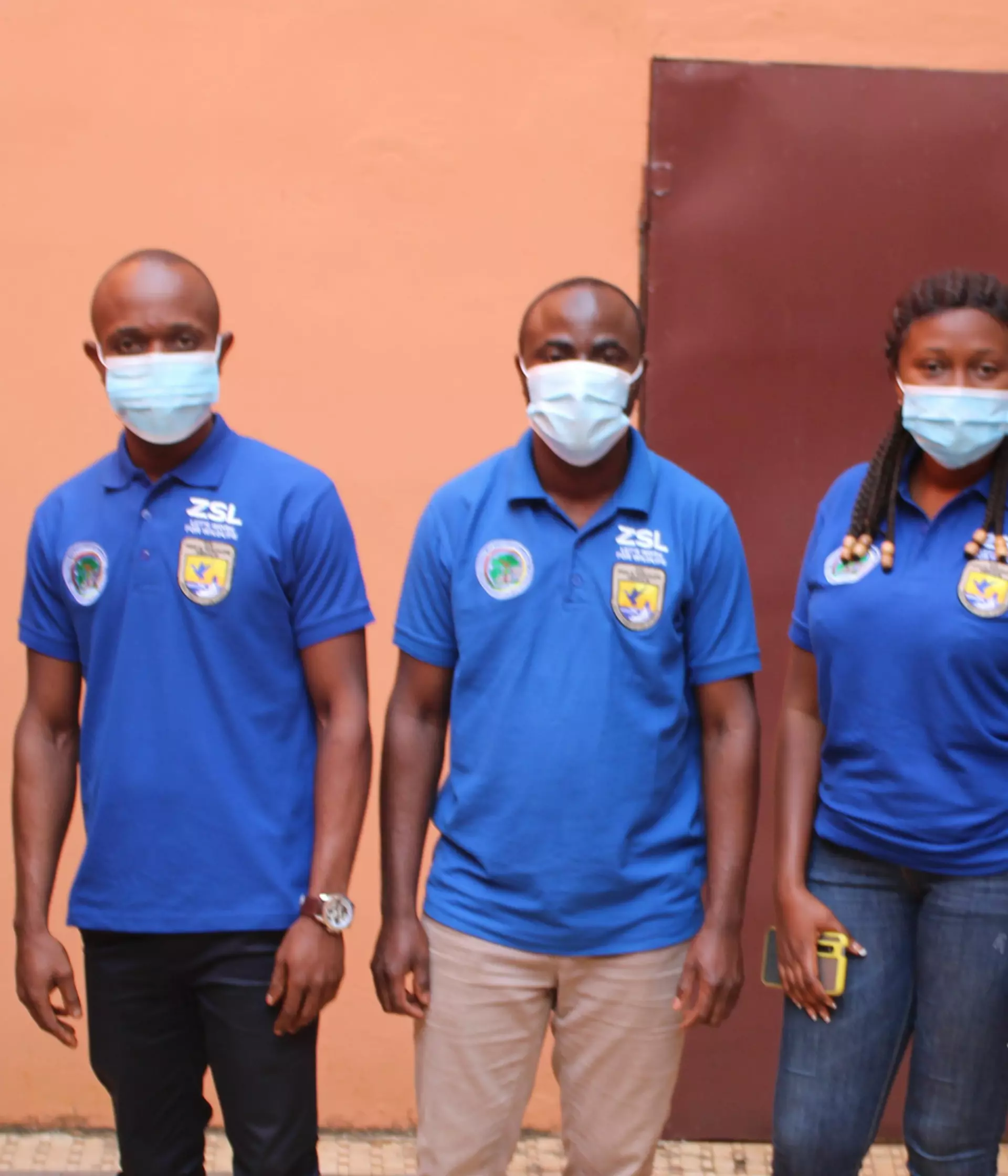MENTOR-Bushmeat Fellowship Programme
Unsustainable hunting for bushmeat has been identified as the single greatest threat to Central Africa’s wildlife. In order to tackle this, ZSL and the US Fish and Wildlife Service (USFWS) have entered a cooperative agreement to implement the MENTOR-Bushmeat Fellowship Programme in collaboration with the Central African Bushmeat Action Group (CABAG).
We share skills and knowledge to build a movement of conservationists equipped with the expertise, tools, and networks to protect and restore wildlife. Through the MENTOR-Bushmeat Fellowship Programme, we seek to combine rigorous academic and field-based training, long-term mentoring, learning through experience, as well as project design and implementation to protect species threatened by illegal trade in bushmeat.
Unsustainable bushmeat trade
The Congo Basin is a landscape rich in biodiversity. It is home to approximately 10,000 plant species, 400 mammals (including lowland and mountain gorillas, chimpanzees and African forest elephants), 1,000 bird species and 700 species of fish. Sadly, many of these species are in decline owing to the pressure from the exploitative nature of the commercial bushmeat trade in urban centres.
Urban demand for bushmeat trade is driven by luxury consumers, and this demand not only impacts wildlife, but also has a direct negative effect on the food security and livelihoods of local and indigenous people by depleting game populations and destabilising communities that depend on wildlife for subsistence.
Our existing relationship with the Cameroonian Government, wildlife college and important African conservation organisations in this region will be integral in enabling effective cross-country collaboration needed to address the international bushmeat market as well as on the ground community outreach.
Goals of the MENTOR-Bushmeat Fellowship Programme
The MENTOR-Bushmeat Programme is seeking to develop capacity within Central Africa to tackle the illegal trafficking of protected species in the commercial bushmeat trade. A total of 8 MENTOR Fellows were selected from bushmeat projects within the CABAG Membership in Cameroon, Democratic Republic of Congo, Equatorial Guinea, Gabon and Republic of Congo, two Fellows from each country.
The programme delivers a trans-disciplinary curriculum that includes:
Bushmeat law enforcement, focussing on criminology and investigation
Analysis of bushmeat transportation routes
Socio-economic analysis of the commercial bushmeat trade
Outreach and behaviour change campaigns
Throughout the programme, the Fellows have become champions and outreach leaders communicating about the impact of bushmeat trafficking on protected species. The eventual aim is for local conservation action to significantly limit the flow of illegal bushmeat trade in protected species, beyond the end the MENTOR-Bushmeat Fellowship Programme.
MENTOR-Bushmeat Fellowship Programme research topics
The Fellows all undertook research projects as part of the Programme, with topics including:
Development of a Social Marketing Strategy to reduce bushmeat consumption in the city of Ouesso in the Republic of Congo.
Determining the status of Black Mangabey in the Lomami National Park.
Evaluation of strategies for protecting giant pangolins in the Lower Ogooué.
The programme ends in 2022, when the Fellows will be able to return to their institutions with the skills and knowledge they have gained and plan and manage effective conservation programmes.
Species worked with include great apes and other primates, forest antelopes and ungulates and pangolins.
People involved
Francis Tarla (Programme Co-ordinator)
Andrew Fowler (West and Central Africa Regional Manager, ZSL)
Nancy Gelman (Programme Officer, US Fish and Wildlife Service, Wildlife Without Borders, Africa Programme)
Partners
Central Africa Bushmeat Action Group
Urgent action to stop the devastation of critical species and habitats by helping people and wildlife live better together, is the only way to save the natural world we love and depend upon. That’s where ZSL comes in, and where you can play your part.
